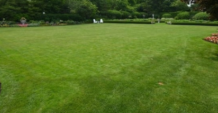For many gardeners, midwinter is a time for pacing the floor and waiting for the weather to break. There’s been plenty of time for indoor projects, but they’ve either been completed or their appeal has faded. Well, here’s an indoor gardening project that needs your attention; sorting through and discarding out-of-date garden seeds.
If you’re like many gardeners, it’s a bit difficult to discard leftover seeds that may still be useable. How long you can keep leftover vegetable seeds depends on several factors, including the kind of vegetable seeds you have and how you’ve stored them over the past year or two. Maintaining ideal seed storage conditions in your home is impractical; but, if you’ve kept the seeds fairly cool and dry, they may still be good enough to plant.
As a rule, most vegetable seeds will remain useable for at least two or three years. There are exceptions; onion, parsley, parsnip, and lettuce seeds loose viability quickly and should be replaced every year. If you’ve been keeping sweet corn, okra and pepper seeds they’ll still be good after two or three years. Squash, watermelon, cucumber, muskmelon and tomato seeds will last up to four years.
No matter how well seeds are stored there’ll always be some uncertainty about their ability to produce a good stand of healthy seedlings. For that reason, it’s a good idea to do a seed test. Select ten seeds at random from the seed packet (do this for each seed lot). Fold the ten seeds inside a moistened paper towel and seal them in a plastic bag. Keep the seeds in a warm room and check them one week later for germination. If four or more of the seeds out of the ten have germinated and are showing signs of good growth the packet of seeds is still good enough to use; otherwise, discard the seeds and buy new seeds for your garden.
Kansas State Reasearh & Extension



